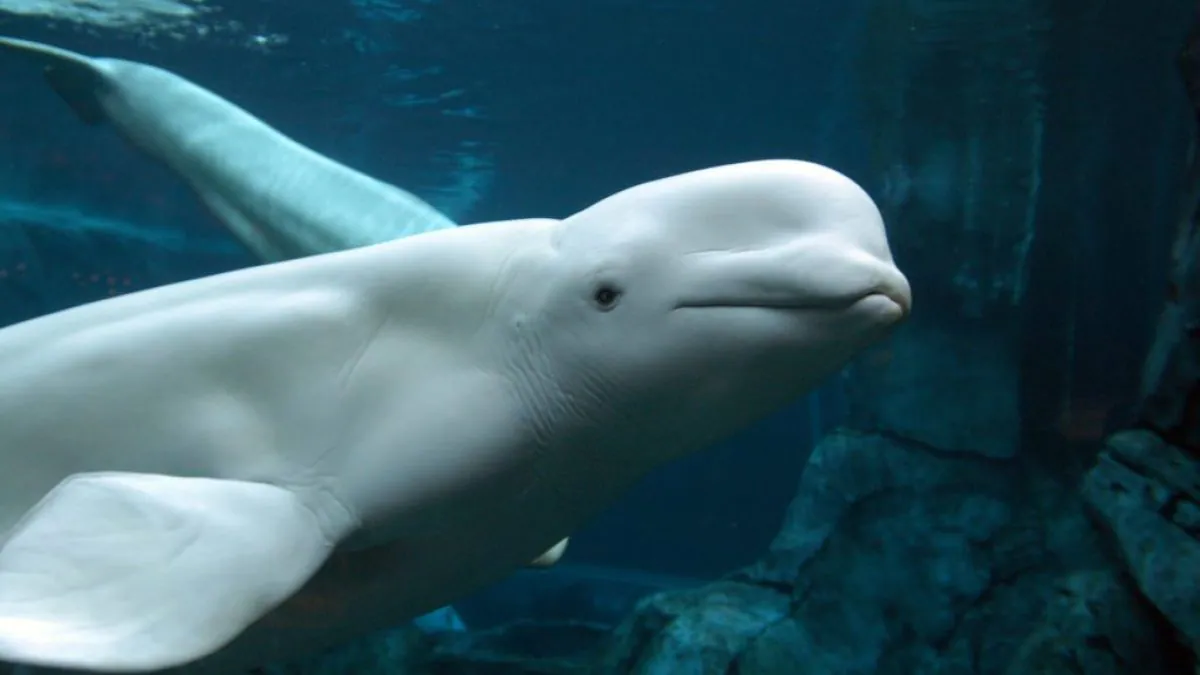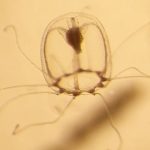What do we know about the beluga stuck in the Seine and the race to save the Arctic whale?
Spotted for the second time on Friday, the marine mammal appeared "very elusive" and thinner than normal, with some skin lesions that have eroded.
A beluga, also called a white whale, is a marine mammal that usually lives in Arctic waters
The beluga that has been in the waters of the Seine for days, trapped in a stretch of the great French river between the locks of Pause and Saint-Pierre-la-Garenne, about 70 km north-west of Paris, seems to be thinner than normal and has some skin lesions that have eroded.
These are the latest news reported by the AFP on the worrying health conditions of the marine mammal that usually lives in the icy waters of the Arctic but which got lost, swimming south to take and go up the Seine, where it was first identified on the morning of Tuesday 2 August.
Spotted for the second time on Friday 5, the white cetacean appeared "very elusive", as explained by Gerard Mauger, vice president of the marine mammal research group. The beluga spent "very little time on the surface, before returning to dive for a long time - indicated the expert -. Trying to approach him very carefully is also difficult, it makes too many changes of direction". So that "we are wondering what to do”.
Lamya Essemlali, head of the non-profit organization for marine conservation Sea Shepherd, explained that some members of his team are using drones to help locate the cetacean more easily and that the priority, at the moment, is that the beluga "be fed even frozen fish, so that it does not starve". The challenge, he added, will be "try to accompany him to the ocean” While the hypothesis of taking the animal out of the water would remain out of the question because it is too risky.
In the area, Mauger said, firefighters, the French Bureau for Biodiversity, the Sea Shepherd Association, and the French Society for Rescue at Sea (SNSM) are at work on four different boats. To complicate the operations, the presence of dozens of boats sailing in that stretch, as well as the unfamiliar environment for the beluga and the considerably lower (and polluted) seabed than the marine ones in which the schools of this protected species live.
As explained by the local authorities, who have asked all those who care about the fate of the cetacean to stay as far as possible from the shores, the solitary belugas can sometimes migrate south in search of food, and temporarily survive in freshwater, though very rarely do they venture that far from the Arctic.
As mentioned, the rescue operations, first of all, provide for the beluga to be fed, also in consideration of what happened last May, when malnutrition had caused the death of an orca that had always found itself in the Seine, in Normandy. On that occasion, the efforts to orient the cetacean towards the sea were unsuccessful and, once the carcass of the animal was recovered, the autopsy revealed the presence of an old bullet lodged in the skull.



